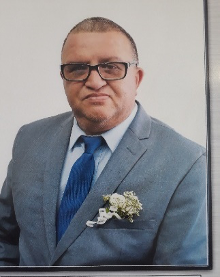Language is one of the ways of communication. The way we understand life and the way experience it is being made transparent by our language. Remember, language can say that which we do not want to say – and in most cases it is not an apt indication of how society functions.
However, language remains a mirror of reality. It changes according to the development, experience and conscientisation of people. Thirty years ago, we did not use the word hyperama – but now, it is a household name – not even to speak about the double meaning of the word ‘necklace’ in the Namibian context.
When the Bible speaks about ‘He’ or ‘Father’, or any other masculine term, we need to seek for the reality behind it (judge) and ask questions such as ‘Why are masculine terms more prominent to the detriment and exclusion of other names (which did not exist) for God’?.
A scrupulous look at the Bible and history would reveal we are not only dealing with a patriarchal look but also a patriarchal society. Patriarchy is the legal, economic and social system, which gives the male as the head of the family a superior place over all other members. Women, the earth and children have a secondary place in the system. Having androcentism at its base, patriarchy subjugated women more than male children and male slaves.
For instance, the laws of the Old Testament do not address woman. Woman are only mentioned in situations where the female heir is lacking in socio economic roles, where they need special protection in the case of widowhood – and more important, where sexual offences are being deliberated upon. Our society is not free from such injustices. How many preachers, when preached about the deliverance of the Israelites by Moses, mention the role of the midwifes, for it was they who started the rebellion when they refused to obey the decrees of the pharaoh.
The word ‘He’ dominated so much that males began to feel they are “gods”. God is male and male is God. Thomas Aquinas saw women as a “misbegotten male, an intrinsically inferior creature, defective intellectual – physically and in the capacity for self-control”. By using exclusive language, woman will constantly feel like an outcast. In other traditions, women could not be ordained because God is male, Jesus was male, the disciples were male and only males can perform this duty. They have forgotten that Mary was the first disciple – someone who heard the word of God and who obeys it.
If we are conscious of the masculine images and abuses in the Bible as well as today, we can do one of the two things:
Reject the bible in its entirety. No matter how hard it is, women who resort to this type of action make the church poorer. There needs to be critical voices.
Re-read the Bible and search for that tradition that brings transformation of church and society. This is the prophetic tradition, a critique against power, patriarchy, abuse and injustice in search of that new humanity where unity, justice, wholeness, peace and transformation is not a distant dream but our calling in this world.
It asks why feminine images for God in the Old Testament, like wisdom, which stood for order and creation were being suppressed (Proverbs 8:22). Why did King David, when he heard his daughter, Tamar, was being raped by his son not punish him for this hideous crime? Why are women’s contributions in the Old well New Testament being omitted? Why do we never hear about the contributions of Phoebe Palmer, SojournerTruth, Alice Walker – to mention a few. Our language excludes them and denies their contribution towards transformation.
We should consider how difficult is it for some women and men to pray ‘Our Father’ when they have been abused by their own fathers. How impossible it is to make the connection when you do not even know your own father. How do you pray to a Mother God when many people do not have the experience of a loving caring mother. How can one make the assimilation when your experiences are contradicting it?
To convey the massage of Jesus Christ, we need to be conscious of the world of people. Their language, history, social context, experience, level of conscientisation are prime determinants. When the church refuses to use inclusive language, just because there is the word ‘he’ in the Bible, then it adheres to sexism, which is the same as racism – when we use discriminatory terms just because they are in history books.
We do not have any right to change the Bible but we have the right to adapt it to a particular situation. What is right, true and kind for any one person does not necessarily hold for the next person. What is important is that people should make a particular connection with the language they use. In conclusion, I wish to say that throughout our own spiritual exercises, we must move beyond God as Father and Mother. Instead, we must experience God as light, as the Sun, the God of Surprises and the God of Dance. To use inclusive language for God is not the end of the answer but it is a stop along the life journey and one is entirely free to move on according to your experience, for God can never be encapulated in language. God is beyond language; God is experience.


